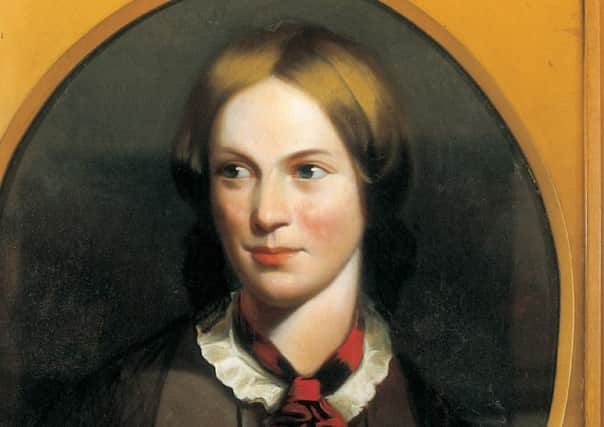Jayne Dowle: Lost in magic of English classics as page turns on old year


It’s this – I like to find a couple of hours during this mad and busy time to sit down and read a book. This is my solitary festive pleasure, a quiet time to reflect upon the old year slipping away and the new one peeping over the horizon.
Sometimes it’s a new book if I’ve been lucky enough to receive one for a present. More often than not though, it’s a classic. It could be a Wilkie Collins ghost story. Or some poems. Or a bit of a favourite novel. Or an extract from a Shakespeare play.
Advertisement
Hide AdAdvertisement
Hide AdThis year I will turn to the Brontës and Twelfth Night. There are two big literary anniversaries coming up in 2016; in April it will be both 200 years since the birth of Charlotte Brontë, and 400 years since the death of William Shakespeare. In their honour then, I will read the final chapters of Jane Eyre and as much of Twelfth Night as I can manage before someone knocks on the door and informs me that we have run out of cream for the mince pies.
This someone is likely to be my son Jack, who is 13, or my daughter Lizzie, aged 10. When they ask me what I am doing hiding away, they will do that quizzical eyebrows thing and ask me why – why am I reading old books when I could be watching a film, or messing about on the internet, or Heaven forfend, playing a computer game?
In anticipation of their question then, I will attempt to answer the following: Why should we still care about the classics?
The first thing to point out is that the classics are still relevant. This might sound odd in a bright and shiny world where everything is here today, gone tomorrow.
Advertisement
Hide AdAdvertisement
Hide AdHowever, take the plotline of countless movies and I’ll wager that you will find its precursor somewhere in a classic novel or play. Only the other day I found myself explaining the complexities of Romeo and Juliet to Lizzie. We were circumnavigating Stairfoot roundabout at the time, a traffic junction known for its demands on the driver, so this wasn’t exactly your typical literary salon.
Lizzie, though, is much given to musings on love and relationships just now, having acquired her first official “boyfriend”. He’s a quiet boy from a quiet family. It can only be a matter of time before we’re having an interesting discussion about Heathcliff and Cathy. I suspect though that given the rather rumbustious nature of my daughter, we might be looking at some modern-day role reversal.
That’s the point I try to get across to my children. Whatever they come across, whether it’s in real life, in a film or the lyrics to a song, it’s odds-on that someone will have expressed the emotion before in words. Despite what our Lizzie thinks, “courting” wasn’t invented after the motor car and flushing lavatories.
As for Jack, the key to getting him involved is certainly not along the path of true love. It’s in battles and power struggles. A few years ago the BBC did a fantastic series of Shakespeare’s history plays. Suddenly, before his computer-addled eyes, Jack saw sword-fighting and wrestling in fancy dress. He began to realise that “history” could be his story too. He still might be loath to pick up a book and sit down and actually read it, but I’m pleased to report that he now takes such an interest in the past that the only GCSE choice he is sure about is history.
Advertisement
Hide AdAdvertisement
Hide AdEarlier this year, the Education Secretary Nicky Morgan called for a return of “the classics” to schools. It’s all very well supporting the study of classic writers – after all, our literary tradition is something we can still be proud of in England.
Unfortunately though, you can’t just shout “Dickens” and hope that somehow a generation of youngsters raised on JK Rowling and Jacqueline Wilson and Michael Morpurgo will drop these favourite modern authors and dive into The Mystery of Edwin Drood.
I’ll draw an analogy here with “classical” and “pop” music. Despite all the wonders of modern technology, and innovators such as DJ and producer William Orbit marrying the two, we still draw a divide between the two in our cultural mind-set.
Surely in the 21st century, we can exercise a bit more imagination and start to bridge the divide? Let’s stop handling the classics with kid gloves and bring them into both classrooms and conversations.
Advertisement
Hide AdAdvertisement
Hide AdI will attempt to pass on the benefits of my dog-eared degree in English Literature to my children as long as I can turn the pages of a book. And I’ll celebrate these important literary anniversaries in advance this Christmas holiday.
However, to mark the occasion and to really make it relevant, I’d like to see the day when the classics are no longer treated as a special case.